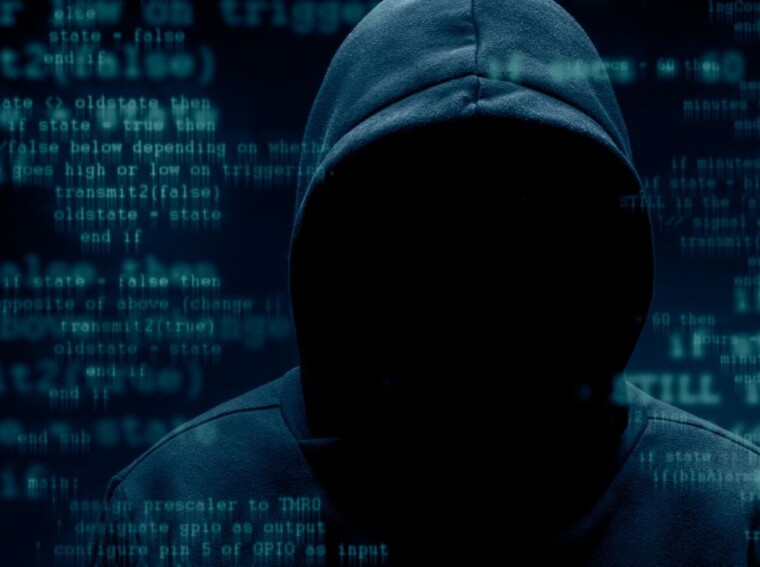It was recently revealed that Russian and Chinese hackers had targeted the European Medicine Agency (EMA) with malicious cyberattacks, making Europe’s drug regulator the latest victim of its adversaries’ increasingly advanced data breach tactics. This news has raised important questions about the future security of digital resources in Europe and beyond.
In this article, we will look at the implications of this attack and what it means for the future of cybersecurity.
Background of the story
The gaming industry has been growing steadily over the past decade and shows no signs of slowing down. As technology advances and more people become interested in playing video games, the potential for what games can do is becoming increasingly limitless. Games are not just for entertainment anymore; they are being used to explore new worlds, to tell stories of a different kind, and to engage players in ways that have never been seen before.
As game makers look to the future of gaming, they must consider what gaming will look like years from now. Players expect constantly evolving experiences, so companies must create engaging and interesting content. With technologies like virtual and augmented reality on the rise, there is potential for a revolution in the gaming industry unlike any other seen before. To prepare for this change, developers must anticipate what players want next and create games that meet those demands. In addition, they must create immersive experiences that keep gamers wanting more with each passing minute.
Russian, Chinese hackers targeted Europe drug regulator
Recent reports have shown that Russian and Chinese hackers have targeted Europe’s drug regulator. This is concerning as it has the potential to interfere with the development and distribution of lifesaving drugs, as well as have an impact on the global economy.
This article will discuss what this means for the future and what concrete steps need to be taken to prevent further damage.
Potential implications for European drug regulation
The implications of this development for drug regulation in Europe are far-reaching and will be felt on numerous levels in the coming years. For one, drug safety and efficacy decisions must be regarded with a greater sense of urgency and due diligence. Pharmaceutical companies must become more rigorous regarding clinical trial data to ensure that their drugs meet the highest standards of safety and efficacy before they reach the market. This could mean that some drugs currently approved for use in Europe would not be authorised for sale if subjected to new scrutiny under the revised regulations.

At the same time, increased automation could benefit drug research by making certain aspects of trials faster, easier and more efficient. This could lead to better laboratory results, such as improved accuracy in dosing calculations and simplified data analysis processes. Automation also has the potential to reduce costs associated with clinical trials, making it easier for companies to bring new drugs to market faster than would otherwise be possible. Ultimately, this could improve overall public health outcomes across Europe as access to better treatments is made available sooner than would otherwise be possible.
Potential implications for global cyber security
The relentless pace of technological advancement and the increasing interconnectedness of technology can have potential implications for global cyber security. As computing technologies become more powerful, they enable increasingly sophisticated cyber-attack methods to steal sensitive information and plant malicious code into various networks and systems. In addition, increasing amounts of data are now being stored online, creating opportunities for hackers to target these digital assets.
Cyber security experts recognize the need to stay ahead of cyber threats as these technologies develop, and governments across the globe have begun implementing various standards on digital security. For example, many countries have adopted comprehensive digital security laws that require businesses and institutions storing sensitive information to meet certain criteria to protect this data from unauthorised access or misuse. Additionally, governments are developing international frameworks enabling collaboration between multiple countries to combat global cyber threats.
Moving forward, global cyber security efforts are expected to continue to increase in sophistication and scale as IT professionals strive to outpace emerging threats. As a result, governments will be required to regulate activities within their borders using the law while strengthening partnerships with other countries for collective action against emerging challenges like data breaches, ransomware exploits, botnets operations, and distributed denial-of-service (DDoS) attacks and more. However, as technology is advancing at an ever-increasing rate, so too are threats from malicious actors – making this a constant arms race that could become increasingly costly.
Russian and Chinese Cyber Attacks
Recently, news broke that Russian and Chinese hackers had targeted the European Medicines Agency (EMA), a major drug regulator for the continent. This news has huge implications for the safety and security of Europe and the potential for future cyber attacks from these countries.
This article will explore what this means for the future and why it is important.
Overview of Russian and Chinese hackers
Russian and Chinese hackers have become increasingly active in cybercrime over recent years. They are notorious for orchestrating botnet attacks such as distributed denial-of-service (DDoS) and malware intrusion on both individuals and organisations. As technology advances, these hackers’ methods to infiltrate private networks become more refined and sophisticated.

The primary motivations for Russian and Chinese cyber attacks vary from one situation to another. Still, they may include economic espionage or sabotage, theft of intellectual property, or attempts to influence American politics through disinformation campaigns. Moreover, it has been well documented that they have targeted US political figures and public institutions like the Department of Justice.
These attacks raise serious concerns about our digital security protocols, especially given the rise of cloud computing, which has made our systems even more vulnerable to breaches. As a result, cyber security experts recommend proactive steps like encrypting data or utilising two-factor authentication when transmitting sensitive information electronically. Additionally, organisations should regularly audit their systems to identify potential weaknesses before malicious actors can exploit them.
Recent cyber attacks targeting the European drug regulator
Recent cyber attacks targeting the European drug regulator have raised serious concerns among experts regarding Russian and Chinese hackers’ growth of malicious activities. Over the last few years, there has been a worrying trend of sophisticated cyber attacks aimed at critical infrastructure and vital databases, particularly those belonging to governments and organisations that handle sensitive information.
The attack against the European drugs agency was attributed to a hacker group from Russia or China. Several data files were stolen in this campaign, leading to questions about how foreign actors could have obtained such sensitive material. In addition, the attack utilised various advanced techniques, enabling the perpetrators to get around regular security measures such as passwords and codes.
This type of attack highlights the need for stronger security measures when protecting critical databases and data storage facilities from sophisticated attackers. It also serves as a reminder that foreign actors should not be underestimated regarding their potential threat on critical systems and networks. Additionally, as more organisations become interconnected, greater efforts must be made to ensure that malicious actors do not compromise or leak vital data.
What Can Be Done?
The news that Russian and Chinese hackers targeted the European drug regulator has alarmed governments and institutions. This type of cyber attack could have serious implications for the future of healthcare and security worldwide.
So what can be done to prevent such attacks, and protect our data in the future? Let’s take a look.
Strengthening cyber security measures
Cyber attacks have become increasingly sophisticated, requiring a more layered and preventive approach to defence. The use of analytics and machine learning can help organisations anticipate cyber attacks and detect anomalies before damage is done. To tackle the growing threats presented by malicious code, organisations must take a comprehensive approach that includes stronger authentication, training users on cybersecurity best practices, developing incident response plans, and constantly testing all lines of defence.

It is also important for organisations to review their various networks and architectures and update them with the latest security technologies available. By deploying automated identity access management systems such as federated identity access management (F-IDAM) in the cloud, they can ensure that only authorised users are granted privileged access rights within core applications or services. Additionally, deploying network firewalls between internal networks should be used to securely filter traffic between internal systems.
Organisations must also develop robust policies around data privacy that protect sensitive information at both end-point devices and across their internal networks. This requires establishing clear guidelines for admins on regular monitoring of user behaviour online including a logging system that tracks all activity transactions made within critical applications and databases. From there companies can create comprehensive strategies around data encryption so they remain compliant while safe-guarding vulnerabilities significantly decreasing potential cyber attack risks within their environment moving forward.
Improving international cooperation
In recent years, the world has become increasingly intertwined, with increased travel across borders and interconnectedness between people worldwide. Consequently, the need for international cooperation on a range of issues related to global development has grown with this interdependence.
International cooperation can take many forms, depending on the specific issue. In general though, international cooperation involves working together between countries to manage shared areas of interest and promote mutual benefits. This could include agreements and treaties related to trade, climate change, human rights or healthcare. It could also involve increased funding and resources allocated towards certain causes or countries, such as foreign aid operating in poorer countries, and decision-making bodies that moderate agreements made by different nations over various topics.
Improving international cooperation for the greater good is key if we move forward economically and politically in a positive direction without straining existing bonds and established national interests. Increased collaboration will benefit individual nations and provide enough support structures so that our planet sustains itself far into the future – ensuring a better future for us all.
